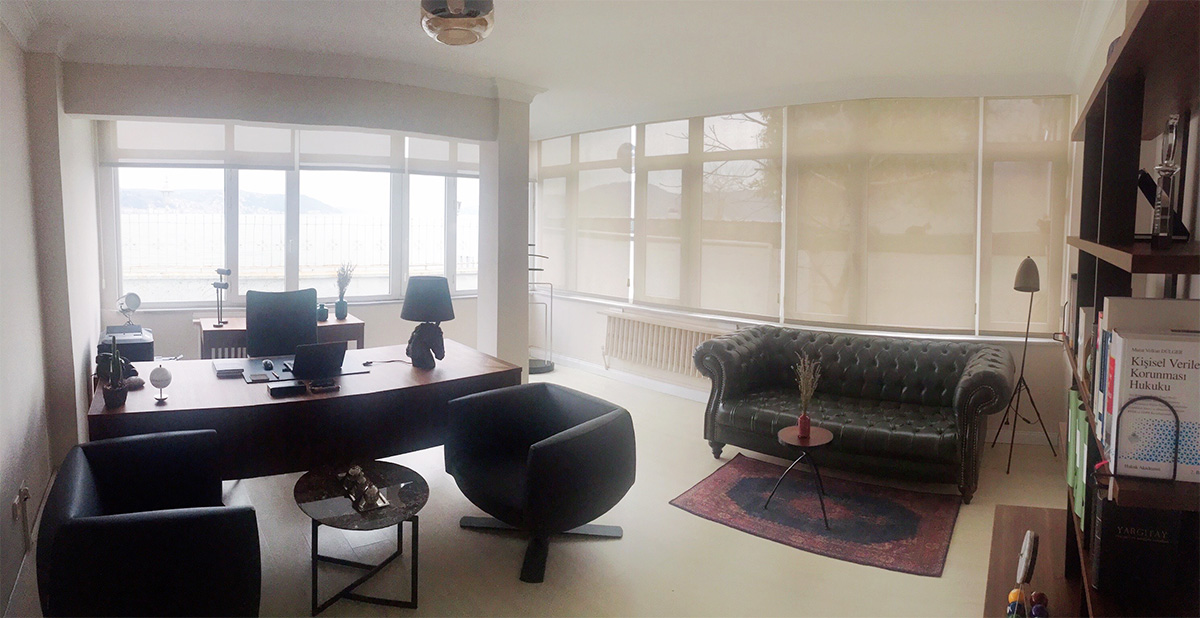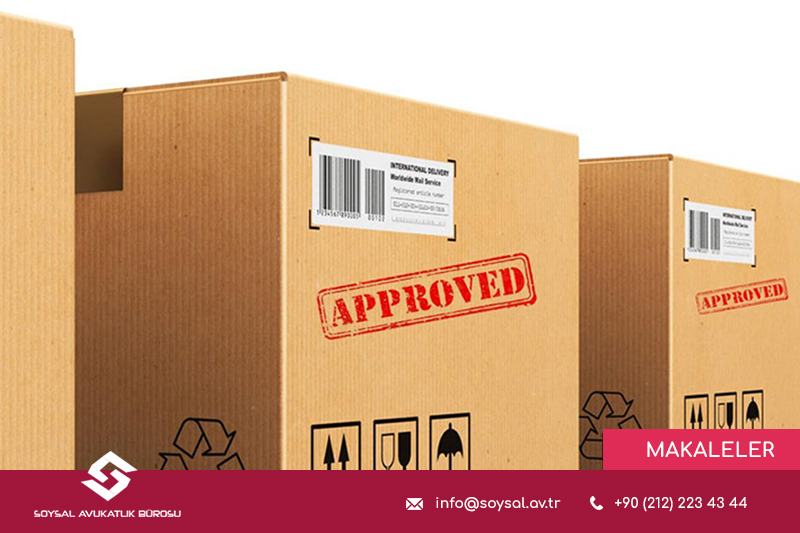THE PROCEDURE REGARDING PROTECTION OF INTELLECTUAL AND INDUSTRIAL PROPERTY RIGHTS AT CUSTOMS GATE
THE PROCEDURE REGARDING PROTECTION OF INTELLECTUAL AND INDUSTRIAL PROPERTY RIGHTS AT CUSTOMS GATE
In today’s world, intellectual and industrial property and related rights have an important place in our lives. While new products, inventions, designs or trademarks, namely intellectual and industrial properties, are released to the market every day, unconscious right-holders may lose or fail to adequately protect their rights. If their intellectual and industrial property rights are not protected, they cannot achieve economic benefit from their property. For instance, the use in bad faith of a rightholder’s brand by third parties without the rightholder’s permission causes loss of reputation. Likewise, releasing counterfeit products causes loss of profit. For such reasons, protection of intellectual and industrial property rights is crucial with regards to preventing the abuse of IP rights.
Within this scope, intellectual and industrial property in Turkey is highly protected under international and domestic legal regulations, one of which lies in customs legislations. There are certain legal arrangements in these legislations regarding property rights. In accordance with European Union legislation, lawmakers have made certain amendments regarding intellectual and industrial property rights in the Customs Law w. No. 4458, through Decree Law w. No. 564. Article 57 of the Customs Law, which has been adapted to the European Customs Code, and relevant articles in the Customs Regulation clarify the procedure by which these rights are protected at customs gates.
Pursuant to Article 57 of the Customs Law, “In reference to the rights that must be protected under the legislation on intellectual and industrial rights, the Customs offices shall detain or suspend the customs procedures of the goods infringing the authority of the right holder, upon the request of the right holder or his representative”. As stipulated in the article, customs offices require the right-holders’ request in order to detain the goods or suspend their customs procedures. The exception of this rule is in sub-clause (b) of the article. Accordingly, in cases where no request has been made at the customs office, and where solid evidence is available showing that the goods in question are violating intellectual and industrial property rights, with a view to ensuring the valid application of the right-holder, these goods may be subject to ex officio customs detention for a duration of three business days or the customs procedures of the goods may be suspended by the customs offices.
In order for suspension of the customs procedures or customs detention of the goods which might infringe on the authority of the right-holder, the right-holder or his representative must apply to the Ministry of Customs and Trade and submit the Appendix-13 which has been drafted by the Ministry. The right-holder should attach to the Appendix all documents and information substantiating the right-holder’s claim that he is the real right-holder and the the goods infringe on his authority. With the rearrangement, as of April 1st, 2013, this application procedure can be performed electronically through the Ministry’s website. The right-holder or his representative can visit the Ministry’s website, click on an eprocessing section and then fill up Appendix-13 if he has an electronic signature.
When the electronic application form is submitted to the Ministry the right-holder should attach and state; i) information regarding the products or the brand registered by the right-holder, ii) information about the right-holder or his representative, iii) the subject of the application, and iv) documents demonstrating differences between original and counterfeit products. The right-holder should add all evidences regarding his property to the form in order to prove his claims. The form is examined and if the form is completed properly, the Ministry will accept the application. After this stage, goods that might infringe on the right-holder’s authorization are detected at the customs gate and the customs office will inform the right-holder or his representative immediately. If the rightholder or his representative makes a request after this notification, the customs office will take the minutes and suspend the customs procedures or decide on the detention of the goods infringing the authority of the right-holder and provide samples from the goods to the right-holder for examination. Following, as stipulated under Article 57/3 of the Customs Law, the customs office gives three business days to the right-holder for perishable goods and ten business days for other goods as of the notification of the decision to suspend or detain the goods in order for the right-holder to obtain an interim injunction decision from the Court. If the right-holder succeeds in obtaining an injunction within this time frame, he must file a lawsuit against the infringer pursuant to Article 397/1 of the Civil Procedure Law w. No 6100, within two weeks from the injunction decision date, and then submit to the customs office the record that proves he filed the lawsuit. In the meantime, pursuant to Article 107 of the Customs Regulation, the right-holder must file the lawsuit within ten days from the injunction decision date. However, this provision should not be taken into account as the regulation has been drafted according to the former Civil Procedure Law w. No 1086. In the end, if the right-holder does not file a lawsuit within the time frame stipulated by law, the injunction decision will be removed automatically and customs procedures will resume.
In conclusion, despite the existence of some problems in practice, we can say that the amendments in customs legislations regarding the protection of intellectual and industrial property rights are well enforced. In addition, the rightholder should pay attention when he initiates legal action against a person or company that the owner of the goods in question are in fact in breach of property rights. The owner of the goods may file a counterclaim as he has suffered an economic loss while his goods are suspended at the customs gate. For this reason, all of this process should be handled delicately and if the rightholder considers that the goods do not infringe his property rights, he should immediately stop the process and not take further action.
Hızlı Erişim

Soysal Avukatlık Bürosu; 2015 yılında İstanbul’da Avukat Süleyman Mert Soysal tarafından kurulmuştur. Avukat Süleyman Mert Soysal İstanbul’da uluslararası alanda faaliyet gösteren saygın hukuk bürolarında 2006 yılından itibaren özellikle fikri mülkiyet, bilişim, ticaret ve şirketler, sağlık, medya ve reklam hukuku alanlarında çalışmış, bu uzmanlık alanlarından yola çıkarak 2015 yılından itibaren de Soysal Avukatlık Bürosu’nu kurmuştur.
Soysal Avukatlık Bürosu, müvekkillerinin ihtiyaçlarını kendi ihtiyacı gibi görüp; taleplerini daima ön planda tutmayı temel prensip edinmiştir. Çalışmalarımızda; genç, dinamik ve istekli yapımızla müvekkillerimize gerekli en yakın ilgi gösterilirken uluslararası alanda faaliyet gösteren hukuk bürolarında 15 yıla yakın çalışarak elde ettiğimiz deneyim ve kurumsal yapı anlayışı da yansıtılmaktadır. Bu çerçevede Büromuz gerek dava takibinde gerekse ticari işletmelerin günlük işlerinden doğabilecek hukuksal sorunlarda müvekkillere en hızlı ve fakat en kapsamlı ve etkili çözümler sunmayı hedeflemektedir. Soysal Avukatlık Bürosu, iş dünyasındaki yenilikleri de çeşitli mesleki üyelikleri ve katıldığı konferanslar aracılığı ile takip ederek yurt içindeki çalışmalarına katkı sağlamaktadır.
Etiketler
Son Makaleler
Haberler
Soysal Avukatlık Bürosundan Haberler


